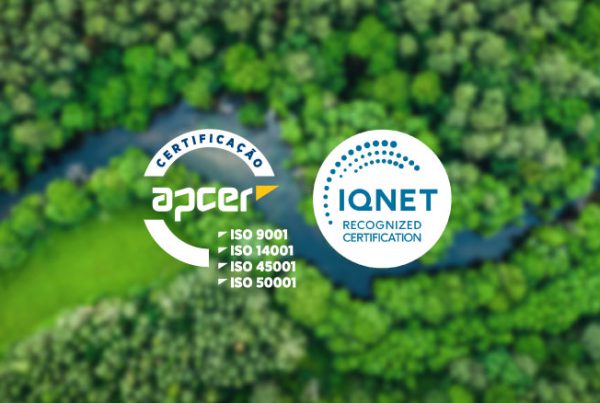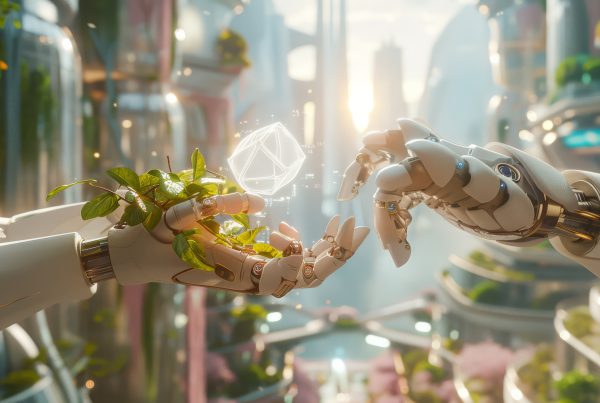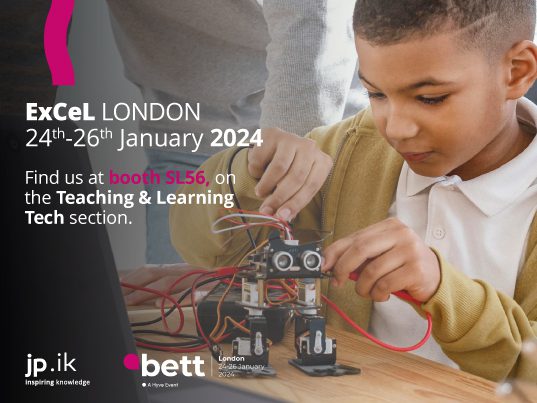We are surrounded by technology. We use it every day when texting, playing games, scrolling social media feeds or watching TV. Technology is a powerful tool and we rely on it. So how can we, teachers, incorporate it in our work? Can it be put to good use to make the world a better place?
I have been a music teacher since 1980 and I love my job. In my classroom we sing and play, but I want my students to be responsible citizens too. So, despite having just one lesson per week, we sing, play and use technology in a proactive way.
This year I came up with QR code challenges for my 6th graders. These group activities recap what students have learned the previous year, while introducing some new content. Children are organised in teams and have to do a number of tasks ending with a recording of their performance on Flipgrid.

Teams are rewarded on ClassDojo. Besides the group challenges, there are individual challenges that encourage students to progress further. To stimulate collaboration and team spirit, once everyone on a team finishes their individual challenge the team gets a team point.
I want students to be competitive but only to a certain extent. It is very important to teach them to be compassionate and willing to help others that may not be so skilled or gifted. Encouraging teamwork and collaboration are essential skills to educate engaged citizens.
Although none of these activities can be found on school manuals, I do think students learn better by engaging and striving to achieve their best. Some critics may say that I’m not “teachingâ€, but these activities are designed to introduce new content, while being challenging and fun. From my experience, students really learn!
Learning to learn, collaborate and solve problems are essential to prepare students for an uncertain future. This is probably the biggest challenge we face as professionals. Quite often teachers forget this and keep doing things as they have been doing for decades. As I wrote in my article published on Daily Edventures: “We won’t get anywhere without fostering creativity, willpower, empathy, critical thinking, problem-solving and autonomy in our students. Being told what to do all day will not prepare children to face the real world.â€
As a Skype Master Teacher, I want to “bring†the world to my students and to discuss its problems. One particular area of concern is the current climate crisis and the plastic pollution problem. By connecting with other classrooms and getting to know their realities, students learn to care, understand and help.

eTwinning is an online community that allows students to work collaboratively with their peers from different countries, on a special platform called TwinSpace. Since 2010 I have been developing eTwinning projects alongside other European schools, like BLASTIC (2016) and Litter@sea (2018) both about plastic pollution.
Litter@sea has a double-reading effect – it can be perceived as “litter at sea†or “literacyâ€. The main focus is to learn and reflect about the ocean’s immense resources and to raise awareness to the problems it is facing today, particularly the impact of plastic pollution on marine life. As a result of our presence on social media, Litter@sea captured the attention of other educators outside the partnership.
That is why I am now using Skype to connect with teachers and students around the world. The Skype Plastic Cleanup Brigade is a Skype lesson I created to talk about the ways in which we can all help solve the plastic problem. It is designed for children of all ages and has been delivered in more than 300 classrooms worldwide since August 2017, having reached thousands of young people.
How does it work? On the Microsoft Education Community platform, educators can register for free on The Skype Plastic Cleanup Brigade page. After registering, I connect with them through Skype to deliver my lesson. Students are invited to take action and are free to do whatever they like, as long as they share their work and environmental actions on Flipgrid, Padlet, Kahoot or social media platforms like Facebook and Twitter, thus inspiring other students to do their share too. The goal is to spread the word!
Here are some examples of the outstanding work being developed by students and teachers through The Skype Plastic Cleanup Brigade:
- Stormy Daniels’ 1st graders (US) won a competition in their hometown for their awareness video about plastic pollution and its impact on the environment. https://bit.ly/2W9HLKx
- Farhan Khan’s students (12-15-year olds) (India) joined forces with a social group to carry out several cleanup campaigns.
- Amela Behmen-Voloder’s 7th graders (Bosnia) are a very concerned group doing a remarkable job in raising awareness. https://bit.ly/2ZF0xeN
- Patcharin Wongchompoo’s 8-year olds (Thailand) are reusing and repurposing plastic in many different ways. https://bit.ly/2XVCk2j
- Janeth Torres’ 5th graders (Mexico) are leading a campaign to refuse plastic bottled water impacting 450 other students, teachers and community members. https://bit.ly/2GDAR9Q
- Rita Zurrapa’s 7th graders (Portugal) are centering their school work on the urgency of taking action by carrying out a series of projects and activities about the sea and its preservation. https://bit.ly/2XWI0ZX
- Heather MacLean’s 6th graders (Canada) are probably going to be the next generation of environmentalists! Such engaging and interactive talks we’ve had!
As a way to connect and stay in touch with all these teachers, I have created the Litter@sea Chats, which are Skype group conversations between educators with the sole purpose of sharing our own experiences and discussing ways of tackling these issues with the students. Thanks to these chats I have been able to gather a group of enthusiastic teachers from all over the world that are passionate and proactive in spreading the word about the climate crisis and collaborating with me to bring our work to the next level.

I’m certainly using many different technologies to not only educate my students in Portugal but also to inspire countless others and their teachers wherever they may be. The climate crisis is a global issue. Litter@sea has become an environmental movement that now resembles a metaphorical octopus with its tentacles spreading influence globally. It is impacting so many communities out there and that makes me very proud! Inspiring people to protect this blue planet of ours and make it a better place for everyone to live in is certainly a very powerful way of using technology. Do you feel inspired yet?
Further reading:
Litter@sea website – https://litterasea.weebly.com/
BLASTIC+Litter@sea Facebook group – https://www.facebook.com/groups/BLASTIC/
Litter@sea on Twitter – https://twitter.com/Litterasea1
My article on Daily Edventures – https://www.dailyedventures.com/2019/08/15/being-told-what-to-do-all-day-will-not-prepare-students-to-face-the-real-world/
My article on the Microsoft Education blog – https://educationblog.microsoft.com/en-us/2019/07/using-skype-in-the-classroom-to-empower-students-to-protect-the-marine-environment/?ocid=FY19Q5SCL_soc_omc_edu_tw_0717
BLASTIC+Litter@sea Facebook group – https://www.facebook.com/groups/BLASTIC/
Litter@sea on Twitter – https://twitter.com/Litterasea1
My article on Daily Edventures – https://www.dailyedventures.com/2019/08/15/being-told-what-to-do-all-day-will-not-prepare-students-to-face-the-real-world/
My article on the Microsoft Education blog – https://educationblog.microsoft.com/en-us/2019/07/using-skype-in-the-classroom-to-empower-students-to-protect-the-marine-environment/?ocid=FY19Q5SCL_soc_omc_edu_tw_0717

Manuela Correia is a music teacher in Portugal. She began her professional career at the age of 17. She has a degree in Music Education and Piano. Throughout her career she has always sought for innovation, having participated in several didactics and musical pedagogy courses, both in Portugal and abroad.
She has developed numerous eTwinning projects with her students and has participated in several national and European eTwinning meetings and conferences, having won seven national prizes and one European award. She was the coordinator of the school newspaper for 13 years. She is a Microsoft Innovative Educator Expert and a Skype Master Teacher. She has created a Skype lesson – The Skype Plastic Cleanup Brigade (2017) – and has been in many classrooms all over the world since. She is the founder of the Litter@sea project. She is married and a proud mother of two.




